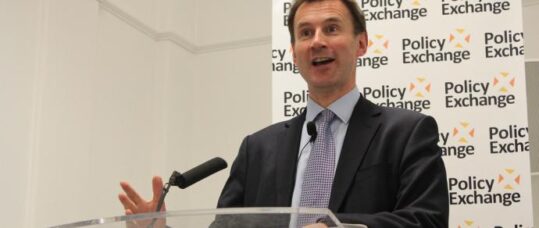Jeremy Hunt as health secretary – his impact on nursing

Jeremy Hunt’s move into the foreign office, as the new foreign secretary, brought to an end his reign as the longest serving health secretary.
Related Article: Nursing in Practice launches ‘How Nurses Count’ campaign
With almost six years in the role, Mr Hunt had plenty of time to leave his mark on the nursing profession.
Related Article: ‘Patients not prisoners’: Palliative care nursing behind bars
- September 2012 – replaces Andrew Lansley as health secretary.
- March 2013 – announces that student nurses will have to work as a healthcare assistant for at least a year in order to qualify.
- March 2015 – after successful negotiations with vaccine manufacturer GlaxoSmithKline, Mr Hunt announces that the meningitis B vaccine will be added to the NHS immunisation programme.
- July 2015 – transfers sole regulation of midwives to the NMC.
- May 2016 – votes against a motion put forward by the Labour Party to prevent the scrapping of the NHS bursary.
- December 2016 – announces a new nurse degree apprenticeship route into nursing.
- December 2016 – calls on the Nursing and Midwifery Council to regulate nursing associates.
- January 2017 – Department of Health announces that the NHS bursary for undergraduate students, including those taking nursing degrees, will no longer be available from August 2017.
- October 2017 – announces plans to increase the number of nurses trained every year by more than 5,000, alongside a ‘tripling’ of the number of nursing associates.
- October 2017 – removes the 1% pay cap on nurse pay in an announcement to Parliament.
- November 2017 – opens discussions with NHS Employers and unions over a new pay deal for NHS staff.
- March 2018 – agrees a new pay deal for NHS staff with NHS Employers and unions. The deal sees most nurses receive at least 6.5% increases on their pay, with many receiving pay rises bigger than this.
| Also read: Matt Hancock named as new health secretary |

See how our symptom tool can help you make better sense of patient presentations
Click here to search a symptom


Jeremy Hunt’s move into the foreign office, as the new foreign secretary, brought to an end his reign as the longest serving health secretary.



